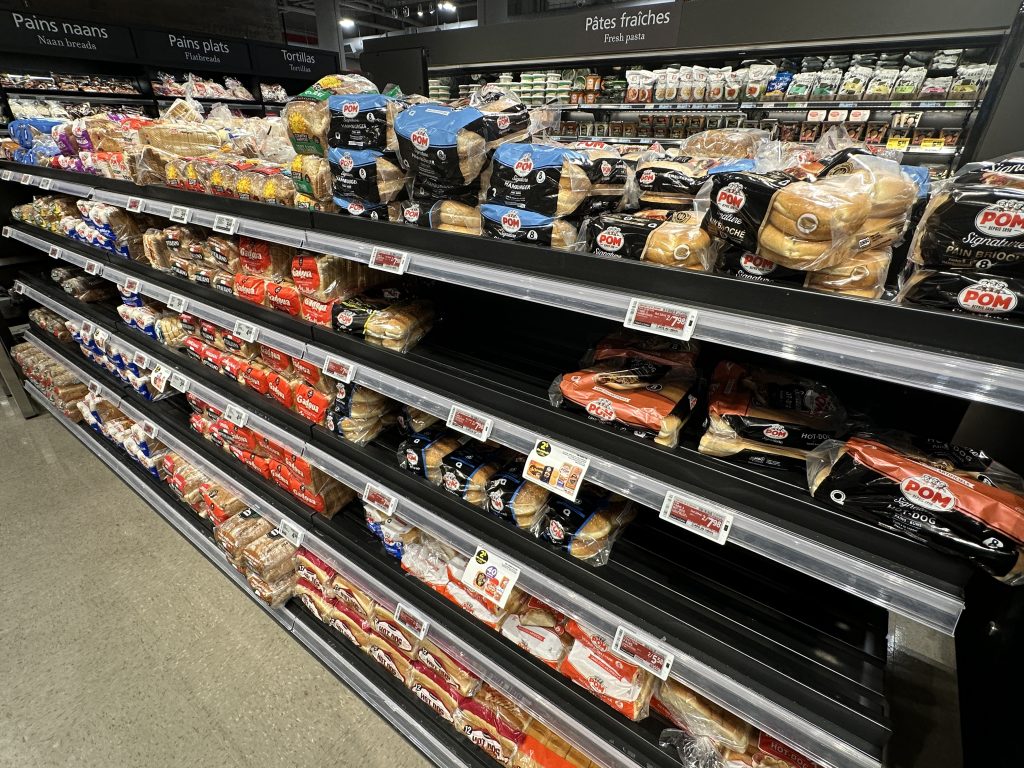Saturday bottle deposit reform: Quebec retailers fear service disruptions

Posted February 28, 2025 1:11 pm.
Last Updated February 28, 2025 1:12 pm.
Starting Saturday, plastic bottles of water, sparkling water, sports drinks, juice and milk will be subject to a deposit in Quebec, but the Retail Council of Canada (RCC) fears overflow and service disruptions, as there are not enough places to deposit the containers.
The extension of the deposit to all plastic ready-to-drink beverage containers from 100 ml to 2 L is due to come into effect on Saturday.
Initially, Consignaction and the Association québécoise de récupération des contenants de boissons (AQRCB), which are overseeing implementation of the deposit reform, planned to open 400 return points by March 1, but a few months ago this was revised downwards to 200 return points.
According to the Retail Council of Canada (RCC), only 47 of the planned hundreds of Consignaction return centers will be ready by Saturday.
“This is why, starting Saturday, a large number of retailers must temporarily offer return capabilities, despite, in many cases, a lack of equipment or storage space,” explained Michel Rochette, President of the Retail Council of Canada.
He added that “a large number of retailers will agree, temporarily, to take containers from Saturday, until the system is set up.”
However, “we hope that people will not rush to the doors on March 1, because the equipment is not yet fully installed, the construction sites are not yet fully open and the grocery stores do not all have the capacity to take back the containers”, added Rochette in an interview with La Presse Canadienne.
The RCC president explained that 1.4 billion plastic containers will be added to the deposit-refund network.
To avoid a breakdown in service, “we’re asking people to wait until the next day, the day after that, the following days and weeks”, because “it’s a completely new and different system that starts on Saturday, and it’s going to take months before it’s fully implemented.”
Setting up an emergency line
During a technical briefing for the media on Friday morning, Normand Bisson, President and CEO of Consignaction, indicated that he does not expect a “significant change” on Saturday “for the service to citizens”, but he understands the concerns of some retailers.
“It’s a big change, we’re going to be up to 4 billion containers under deposit, so we’re not taking it lightly at all and we know that there could be little things happening left and right and that’s why, among other things, we’ve set up our emergency line, so that retailers can reach us quickly”, explained the man responsible for implementing this reform.
An investigation is underway
At the end of November, Environment Minister Benoit Charette announced the launch of an administrative inquiry into the AQRCB and Consignaction.
Minister Charette cited “the speed of deployment” of the network of container deposit sites and “certain elements brought to our attention” to justify the decision to launch the inquiry.
On Friday morning, Normand Bisson indicated that his team had “fully contributed to the investigation, which is ongoing”.
The president and CEO of the organization representing beverage producers admitted that it was difficult to find funding to build new depot locations because of the investigation, which is further slowing network rollout.
“We’re trying to find alternative solutions to financing and, of course, as soon as the administrative investigation is settled, that will eliminate the perception of risk that didn’t initially exist, when we spoke with our financial partners,” he explained, adding that ‘things should return to normal’.
On Friday morning, a Ministry of the Environment official explained that there was “no precise date” set for the publication of the results of the administrative inquiry.
Building 100 return sites in 6 months
According to Normand Bisson, “the plan now is to open 100 return sites between now and September 1, 2025” and “reach 200 by March 1, 2026”.
The AQRCB and Consignaction boss was keen to emphasize the scale of the task his team is trying to accomplish.
“It’s not going to be easy, these are very tight deadlines,” he explained, adding that it was exceptional for an organization to attempt to ‘sign 200 commercial leases’ in one year.
“Then there’s the construction part, the hiring of staff, the installation of equipment, it’s huge, so, it’s not going to be simple”, but ‘we’re going to do what we need to do to achieve these objectives’.
–This report by La Presse Canadienne was translated by CityNews








